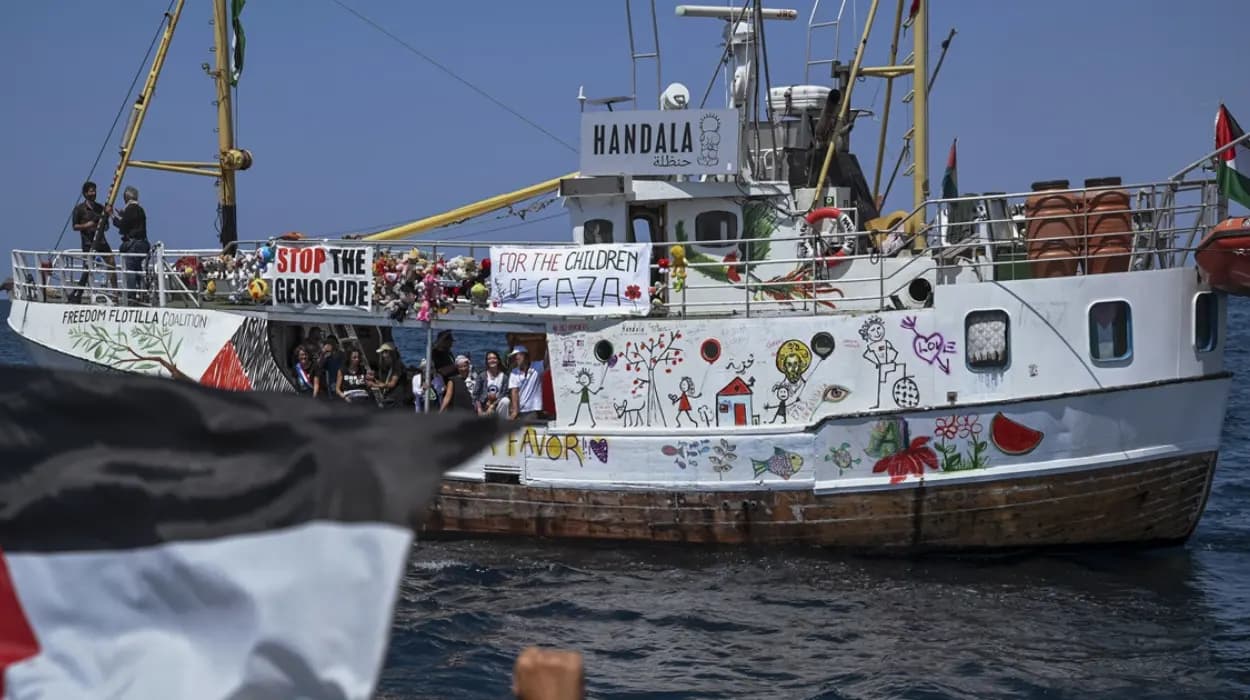Iran has strongly condemned the Israeli military's attack on
a Gaza-bound aid flotilla, calling it a violation of international law and a
grave humanitarian crime. This condemnation comes amidst widespread
international debate and criticism following the incident.
What happened during the Israeli attack on the Gaza-bound aid flotilla?
As reported by journalists from multiple reliable sources,
the incident involved Israeli forces intercepting an aid flotilla that was en
route to Gaza. The flotilla comprised several vessels carrying humanitarian
supplies aimed at alleviating the severe conditions in Gaza due to the
longstanding blockade. The Israeli military carried out what they described as
a security operation but resulted in violent clashes, casualties, and
widespread international uproar.
According to coverage by Al Jazeera, Israeli commandos
boarded the vessels and confronted activists, leading to fatalities and
injuries among those onboard. The incident raised significant questions about
the legality and humanitarian implications of such an operation in
international waters.
What has Iran’s official response been to the attack?
Iran’s Ministry of Foreign Affairs issued a formal condemnation shortly after the incident. As conveyed by Fars News Agency, Iran’s Foreign Ministry spokesperson labelled the Israeli attack as
"a serious breach of international law and a blatant act of aggression."
The spokesperson emphasised that Israel’s actions constituted a
"flagrant violation of humanitarian norms and rights,"
underscoring Iran’s viewpoint
that Gaza is under a blockade that itself violates international standards.
Furthermore, Iranian officials including Foreign Minister
Hossein Amir-Abdollahian voiced strong denunciations in comments reported by
Press TV, urging the international community to hold Israel accountable.
Amir-Abdollahian described the assault as “state terrorism” and insisted that
such acts undermine any prospects for peace and stability in the region.
How has the international community reacted?
The coverage by BBC News highlighted that the attack on the
flotilla sparked condemnation from various governments and international
organisations. The United Nations Secretary-General expressed grave concern,
calling for an independent investigation to ascertain the facts and ensure
accountability.
Human rights organisations such as Amnesty International and
Human Rights Watch criticised Israel's use of force, labelling it
disproportionate and unacceptable given the humanitarian nature of the
flotilla’s mission. As reported by The Guardian, many countries, including
Turkey whose nationals were among the activists, demanded clarifications and
reparations from Israel.
The Israeli government's justification for the raid was also
extensively covered. Israeli officials defended their actions as necessary
measures to prevent weapons smuggling into Gaza via the flotilla. They claimed
that participants were warned and that the operation was intended to avoid
casualties.
What are the implications for Gaza and the broader Israeli-Palestinian conflict?
Iranian analysts and regional commentators, cited by
Al-Monitor, interpret the flotilla attack as part of the broader context of
Israel’s tightening of the blockade on Gaza, which has devastated the civilian
population. Iran’s condemnation aligns with its longstanding support for
Palestinians and opposition to the Israeli blockade.
The incident has further polarised regional politics and may
influence future aid delivery attempts and international diplomatic efforts. As
noted by Reuters, the flotilla attack has reignited debates on maritime rights,
humanitarian access, and the political impasse in the Israeli-Palestinian
conflict.
What messages have been conveyed by flotilla organisers and activists?
Activists aboard the vessels, including members of
international human rights groups, issued statements condemning the raid as an
act of aggression against peaceful humanitarian efforts. As reported by CNN,
survivors of the attack described the use of excessive force and highlighted
their commitment to continuing aid missions despite the risks.
They called on the global community to press Israel to lift
the blockade and ensure safe passage for humanitarian aid to Gaza’s civilians.
What legal issues surround the attack on the flotilla?
Legal experts featured in coverage by The New York Times
emphasise that the incident raises critical questions about international
maritime law, the legality of blockades, and the use of force against aid
vessels in international waters.
Iranian officials and international lawyers argue that
Israel’s interception violated the United Nations Convention on the Law of the
Sea (UNCLOS) and customary international humanitarian law protecting
humanitarian aid efforts.
Israel disputes these claims, citing security concerns and the necessity to prevent arms smuggling. The contrasting positions highlight the complexity and contentious nature of the event from a legal standpoint.
